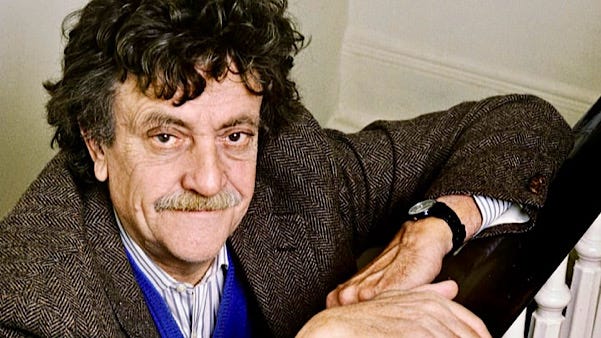Suggested Readings
A few recommendations by Figs in Winter for your reading pleasure
What Kurt Vonnegut’s “Slaughterhouse-Five” tells us now. Kurt Vonnegut’s “Slaughterhouse-Five” is humane enough to allow, at the end of the horror that is its subject, for the possibility of hope. I first read “Slaughterhouse-Five” in 1972, three years after it was published and three years before I published my own first novel. I was twenty-five years old. 1972 was the year of inching slowly toward the Paris Peace Accords, which were supposed to end the war in Vietnam, though the final, ignominious American withdrawal—the helicopters airlifting people from the roof of the American Embassy in Saigon—would not take place until three years later, at which point, by way of a small footnote to history, I had become a published writer. … (New Yorker)
Why young men are losing faith in science. A few years ago, on a flight, I was seated next to a man in his mid-20s. He looked at the astrobiology textbook I was reading and asked if I was a scientist. When I told him I was, his face lit up and he told me how much he loved science. He listened to podcasts like “The Joe Rogan Experience” and others where scientists came on as guests and talked about quantum mechanics, black holes and ancient aliens. Encouraged by his enthusiasm, I told him that not everything on those shows was science (case in point: ancient aliens). I advised him to be on his guard. Then, with all earnestness, he told me while I was clearly OK, it was common knowledge that sometimes, on some subjects, science hid the truth. … (New York Times)
Reading Schmitt in Beijing—How China’s rise provoked America’s illiberal turn. In his hugely influential 1992 bestseller, The End of History and the Last Man, the political scientist Francis Fukuyama famously asserted that “history” as the German philosophers Hegel and Marx understood it—that is, the evolution of human societies—had come to its conclusion. Liberal democracy and free-market capitalism, although they might never be adopted in every country, represented the end point of millennia of ideological development and transformation. Fukuyama called the United States a “post-historical” country, positing that it had long ago finished its political evolution and was merely waiting for China and other countries to draw back from the historical dead-end of authoritarianism. … (Foreign Affairs)
What would a Stoic do in the digital age? You just met a self-declared ‘man of culture’, who is interested in philosophy and recommends himself as an open-minded person. What a lucky day! You strike up a conversation, but the longer it goes, the more red flags appear. You see, he reads Marcus Aurelius daily but is also a fan of Jordan Peterson. He talks about the rising cost of living, but since that’s out of his control, he tries to hustle like Andrew Tate. Oddly, gender equality in the EU bothers him a lot for something outside of his control, so he exults the local Putin or Trump cosplayer. Similarly, he does not have a girlfriend but talks about women as ‘females’, and his role model is Elon Musk. Just what in the world is happening here? … (Daily Philosophy)
On a pleasing encounter with a pickpocket. I was in town the other evening, walking by myself, at my usual rapid pace, and ruminating, in all likelihood, on the military affairs of the Scythians, when, at a lonely street corner not adorned by a gas-lamp, I suddenly felt a delicate stir in my upper pocket. There is a sort of mechanical intelligence in a well-drilled and well-treated body, which can act, in an emergency, without orders from headquarters. My mind, certainly, was a thousand years away, and it is at best drowsy and indifferent. It had besides, no experience, nor even hearsay, which would have directed it what to do at this thrilling little crisis. … (Quotidiana)

